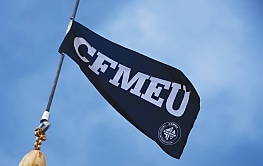
A damning report released today (14 November) by Unions NSW has exposed some horrific statistics pertaining to the workplace sexual harassment of migrant women.
A survey conducted by Unions NSW of 3,000 migrant women who have worked across multiple industries found more than half have experienced workplace sexual harassment.
“Migrants come to Australia to seek opportunity but are instead confronted by horrific workplace exploitation,” said Unions NSW secretary Mark Morey.
“Migrant women are facing sexually suggestive comments, intrusive questions, unwelcome touching and inappropriate physical contact. This is reprehensible. It has to stop.”
As far as specific industries go, the construction industry reported the highest rate, as more than four in five (82 per cent) of respondents reported workplace sexual harassment. Following this was the horticulture industry (53 per cent), hospitality (51 per cent), retail (50 per cent), and the cleaning industry (41 per cent).
Alongside Unions NSW, the report was launched by Federal Minister for the Environment Tanya Plibersek and NSW Minister for Women Jodie Harrison.
The survey found that women who work on temporary visas held little faith in their employers, expressing that they aren’t doing enough to protect them from sexual harassment, with a significant number quitting their jobs because they felt in danger.
Making matters worse, women who attempted to put a stop to the behaviour by defending themselves were often fired, forced into resigning, their shifts were cut, and they were also threatened with deportation.
This fear of consequence drove 75 per cent of victims away from reporting sexual harassment. According to the report, seven in 10 (67 per cent) cleaning workers indicated concerns about their visa status, followed by 64 per cent in construction, 60 per cent in retail, 58 per cent in horticulture, and 51 per cent in hospitality.
“The findings have revealed an unacceptable reality for migrant women who work in some of Australia’s most essential yet vulnerable industries,” said Morey.
In its media release, Unions NSW called for a number of reforms to protect migrant women, including:
-
Establish migrant worker centres to support women with legal support and encourage them to report harassment.
-
Education and training to address cultural misunderstandings and raise awareness of behaviours that constitute sexual harassment.
-
Remove visa conditions that make workers vulnerable, including the 88-day farm work requirement.
-
Fund better employment pathways and training programs.
-
Regular assessment of the Workplace Justice visa and Strengthening Reporting Protections pilot to ensure they are effectively assisting in reducing the power imbalance that exists between migrant women and perpetrators.
“They are enduring sexual harassment in silence, feeling pressured to choose between their dignity and their livelihoods. Unions NSW is pushing the government to take urgent steps to implement policy changes that ensure safety, respect and fair treatment for every worker, regardless of their visa status,” said Morey.
RELATED TERMS
Sexual harassment is characterised as persistent, frequent, and unwanted sexual approaches or behaviour of a sexual nature at work. Sexually harassing another person in a setting that involves education, employment, or the provision of goods or services is prohibited under the law.
Kace O'Neill
Kace O'Neill is a Graduate Journalist for HR Leader. Kace studied Media Communications and Maori studies at the University of Otago, he has a passion for sports and storytelling.










